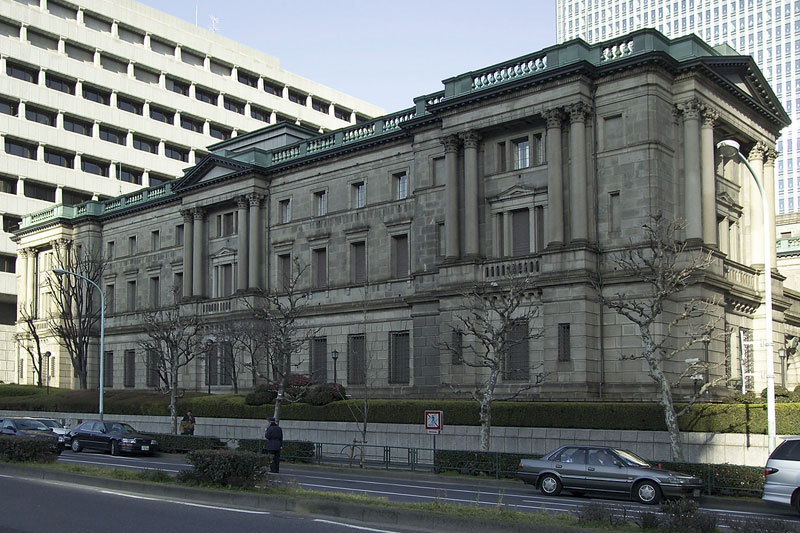By Moran Zhang - Uncertainties are deepening about the course of the Japanese economy ahead of the first consumption tax hike in 17 years, which will likely prompt the Bank of Japan (BoJ) to unleash a new round of stimulus, economists say.
“We expect the BoJ to implement additional quantitative and qualitative easing measures some time during the second quarter, most likely in April, in order to counter downside risks to economic growth from the consumption tax hike in April,” Takuji Aida, an economist at Societe Generale said in a note on Wednesday.
Japanese Prime Minister Shinzo Abe is trying to fix the country’s fiscal mess by raising the sales tax from 5 percent to 8 percent this April, then again to 10 percent in October 2015. The Japanese public debt exceeded one quadrillion yen ($10.46 trillion) in 2013, more than twice the annual GDP of Japan.
Lifting the sales tax would be a clear first step towards fiscal consolidation, a key component of the long-term growth strategy, the so-called “third arrow” of Abenomics. However, such a move, if not handled well, could also plunge the economy into contraction, damaging an effort to end 15 years of deflation.
After all, similar moves in 1997 played a role in pushing the country back into recession when the economy was enjoying what appeared to be a promising recovery from the bursting of a major asset-price bubble in the early 1990s.
Economic growth in the world’s third-largest economy has already decelerated in recent quarters and the upcoming April sales-tax bump is threatening to trigger the deepest one-quarter contraction since the March 2011 earthquake.

Growth of Japan’s gross domestic product is expected to contract by an annualized 3.7 percent between April and June. Meanwhile, the index of consumer sentiments over the next six months fell in February, marking the third consecutive month of decline, according to the Cabinet Office.
Haruhiko Kuroda’s first act on assuming the governorship of the BoJ in April 2013 was to unleash a new phase of monetary policy, dubbed “quantitative and qualitative easing” (QQE). The BoJ holds its next monetary policy meeting on April 7-8 -- a few days after the consumption tax increase takes effect on April 1.
Aida cites five reasons the BoJ will act soon.
1. The market’s inflation expectation is below the BoJ’s price stability target of 2 percent.
“The QQE policy has pushed up the market’s expectation that the economy will soon exit from deflation. However, the problem is that the market’s expectation is much weaker than the BoJ’s commitment to it,” Aida says.
For example, the BoJ’s consumer price index (CPI) forecast for fiscal year 2015 is 1.9 percent while the market consensus is only 1.0 percent.
2. The BoJ needs to act quickly if it is to fulfill its goal of achieving 2 percent inflation by 2015.
“The market is unsure that year-on-year inflation will start to accelerate again toward 2 percent. Leaving this situation as it stands will lead to the decreasing credibility of the BoJ’s commitment to achieve the 2 percent price stability target,” Aida says.
3. Additional monetary easing has become the market consensus.
The market’s expectations are short of the BoJ’s target, and additional monetary easing has become a market consensus. Around 70 percent of market participants expect additional monetary easing by the third quarter, and about half of them expect additional monetary easing during the second quarter, according to the bank.
“If the BoJ hesitates to decide on additional monetary easing, there will be a risk of the market being confused about the implications of the policy, which is intended to change inflation expectations,” Aida notes.
4. Easing monetary policy further after long-term real interest rates have turned negative would provide a further boost to the economic recovery.
“We assume that in the U.S., the Federal Reserve decided to introduce a third round of quantitative easing partly to reduce downward pressure on the economy before the fiscal cliff that was expected in 2013. Considering the consumption tax hike in April 2014, we believe that Japan is in a similar situation,” Aida adds.
5. Additional monetary easing is needed to support the other two arrows of Abe's plan to revive Japan economy -- fiscal stimulus and structural reforms.
